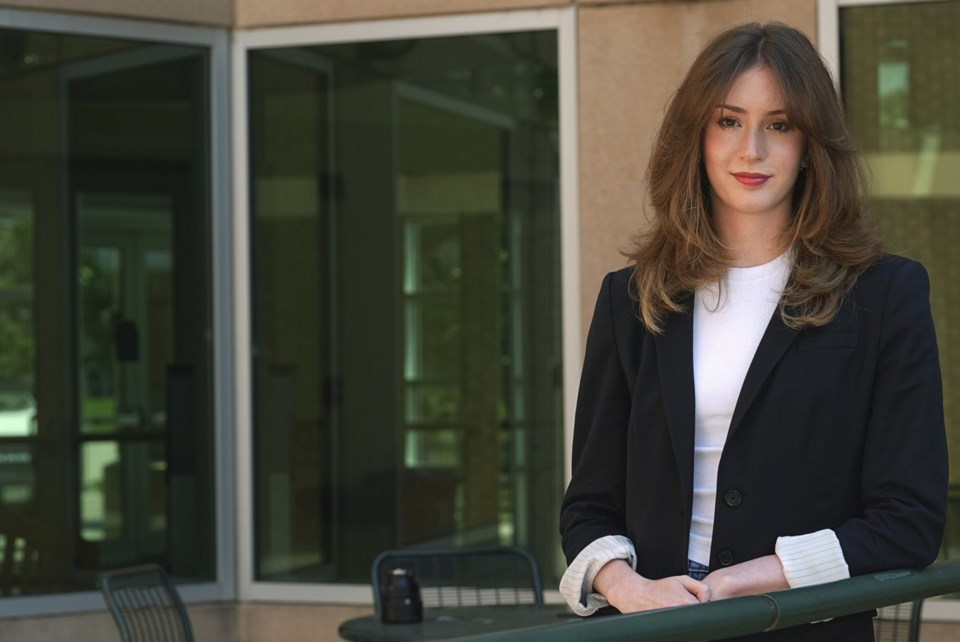COLORADO SPRINGS (AP) — Administrators at the state university’s campus in Colorado Springs thought they stood a solid chance of dodging the Trump administration’s offensive on higher education.
That optimism turned out to be misplaced.
An Associated Press review of thousands of pages of emails from University of Colorado-Colorado Springs officials, as well as interviews with students and professors, reveals that school leaders, teachers and students soon found themselves in the Trump administration’s crosshairs, forcing them to navigate what they described as an unprecedented and haphazard degree of change.
Here’s what the AP found:
Students, faculty describe a culture of fear and uncertainty
Most students in the United States are educated at regional public universities or community colleges — not the kind of schools that have typically drawn attention from culture warriors. Conservatives have long sought to revamp higher education, particularly at elite universities, saying they are concerned about liberal indoctrination and raucous protests.
Though students and faculty alike described UCCS, located in a conservative part of a blue state, as politically subdued, if not apolitical, the school has confronted many of the same challenges as its more prestigious counterparts across the nation.
UCCS lost three major federal grants and found itself under investigation by the Education Department. In the hopes of avoiding the Trump administration’s attention, the school renamed websites and job titles, all while navigating internal pressure from students, faculty and staff who wanted the school to take a more combative stance with the Trump administration.
“Uncertainty is compounding,” the school’s chancellor, Jennifer Sobanet, told faculty at a February meeting, according to minutes of the session. “And the speed of which orders are coming has been a bit of a shock.”
UCCS declined to make any university administrators available to be interviewed. A spokesman asked the Associated Press to make clear that any professors or students interviewed in this story were speaking for themselves and not the institution.
A White House spokesperson did not reply to emails seeking comment.
Ava Knox, a rising junior who covers the school's administration for the student newspaper, said the university's leadership is “feeling pressure, because we want to maintain our funding here. It’s been tense.”
Faculty, Knox added, “want to be very careful about how they’re conducting their research and about how they’re addressing the student population. They are also beholden to this new set of kind of ever-changing guidelines and stipulations by the federal government.”
Research grants disappeared
School officials were dismayed when the Trump administration terminated research grants from the National Endowment for the Humanities, the Defense Department and the National Science Foundation, emails show. The grants funded programs in civics, cultural preservation and boosting women in technology fields.
Administrators scrambled to contact federal officials to learn if other grants were on the chopping block, but they struggled to find answers, the records show.
School officials repeatedly sought out the assistance of federal officials, only to learn those officials were not sure what was happening as the administration halted grant payments, fired thousands of employees and shuttered agencies.
“The sky is falling” at the National Institutes of Health, a university official reported in notes on a call in which the school’s lobbyists were providing reports of what was happening in Washington.
DEI and transgender issues hit campus
To force change on campus, the Trump administration has launched investigations targeting diversity programs and efforts to combat antisemitism.
The Education Department, for example, opened a probe in March targeting a Ph.D. scholarship program that partnered with 45 universities, including UCCS to expand opportunities to women and nonwhites in graduate education. The administration alleged the program was only open to certain nonwhite students and amounted to racial discrimination. UCCS is one of the schools under investigation — a fact that caught the university off guard.
“Sorry to be the bearer of bad news UCCS is included on the list” of schools being investigated, wrote Annie Larson, Assistant Vice President of Federal Relations & Outreach for the entire University of Colorado system.
“Oh wow, this is surprising,” wrote back Hillary Fouts, dean of the graduate school at UCCS.
UCCS also grappled with how to handle executive orders, particularly those aimed at the transgender community.
In response to an order that sought to revoke funds to schools that allowed trans women to play women’s sports, UCCS launched a review of its athletic programs. It determined it had no transgender athletes, the records show. University officials were also relieved to discover that only one school in their athletic conference was affected by the order, and UCCS rarely, if ever, had matches or games against that school.
School officials sought to avoid controversy and the limelight
UCCS administrators have sought to avoid getting dragged into controversies, a frequent occurrence in the first Trump administration.
Soon after Trump was sworn in, for example, a staff member in UCCS’s sustainability program began pushing the entire University of Colorado system to condemn Trump’s withdrawal from an international agreement to tackle climate change. It was the type of statement universities had issued without thinking twice in past administrations.
In an email, UCCS’s top public relations executive warned his boss: “There is a growing sentiment among the thought leadership in higher ed that campus leaders not take a public stance on major issues unless they impact their campus community.”
___
Contact AP’s global investigative team at [email protected] or https://www.ap.org/tips/
Byron Tau, The Associated Press


